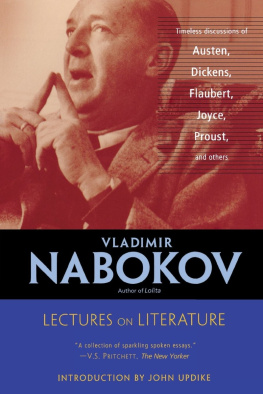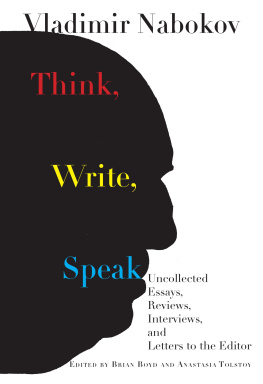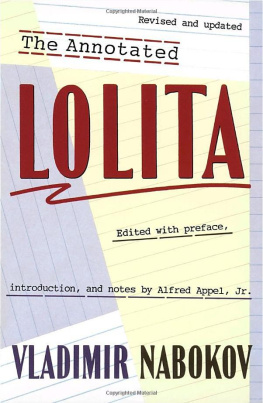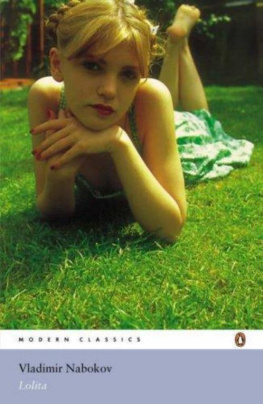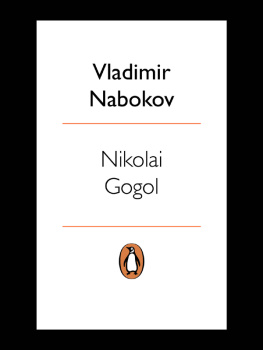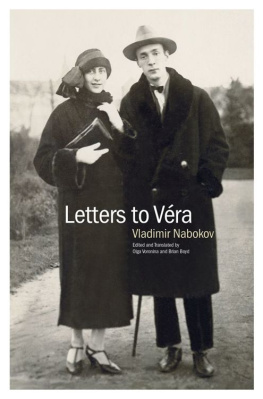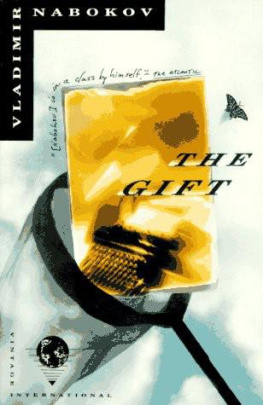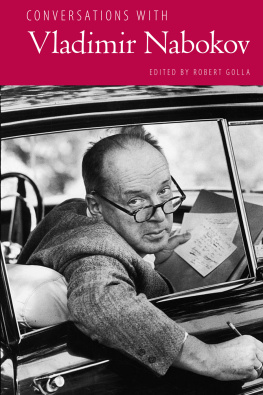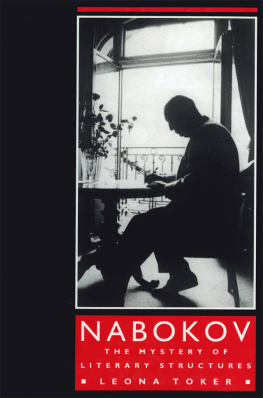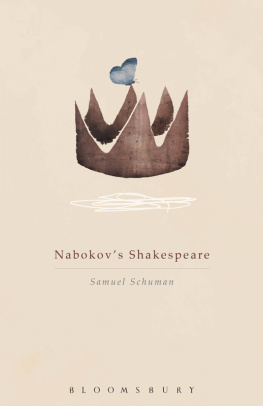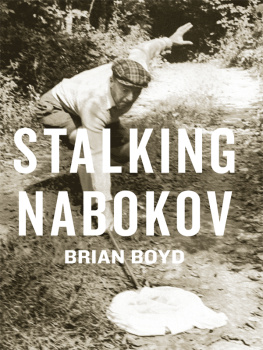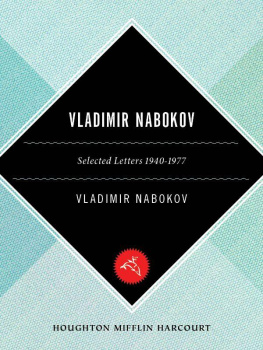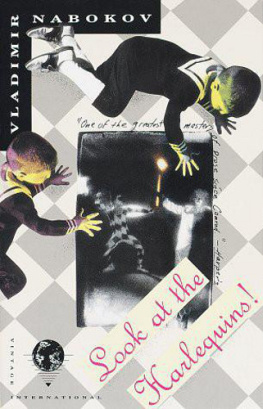Contents
J ANE A USTEN
C HARLES D ICKENS
G USTAVE F LAUBERT
R OBERT L OUIS S TEVENSON
M ARCEL P ROUST
F RANZ K AFKA
J AMES J OYCE
Editor's Foreword
by Fredson Bowers
In 1940, before launching on my academic career in America, I fortunately took the trouble of writing one hundred lecturesabout 2,000 pageson Russian literature, and later another hundred lectures on great novelists from Jane Austen to James Joyce. This kept me happy at Wellesley and Cornell for twenty academic years.
Vladimir Nabokov arrived in America in May 1940. After lecturing on the road for the Institute of International Education and teaching a summer course in Russian literature at Stanford University, he was at Wellesley College from 1941 to 1948. Initially he was the Wellesley Russian Department and taught courses in language and grammar; but he also developed Russian 201, a survey of Russian literature in translation. In 1948 Nabokov was appointed Associate Professor of Slavic Literature at Cornell University where he taught Literature 311-312, Masters of European Fiction, and Literature 325-326, Russian Literature in Translation. The catalogue description for Literature 311-312 was almost certainly written by Nabokov: "Selected English, Russian, French, and German novels and short stories of the nineteenth and twentieth centuries will be read. Special attention will be paid to individual genius and questions of structure. All foreign works will be read in English translation." This course included Anna Karenin, "The Death of Ivan Ilyich," Dead Souls, "The Greatcoat," Fathers and Sons, Madame Bovary, Mansfield Park, Bleak House, "The Strange Case of Dr. Jekyll and Mr. Hyde," Swann's Way , "The Metamorphosis," and Ulysses. Nabokov was prohibited from teaching American works at Cornell because he was not a member of the English Department. He was a visiting lecturer at Harvard University in the spring of 1952.
After he left teaching in 1958, Nabokov planned to publish a book based on his lectures, but he never began the project. (The lectures on Dead Souls and "The Greatcoat" were incorporated in Nikolai Gogol [1944].) These volumes preserve his lectures in their classroom form. Apart from the happy circumstance that here we have a major writer responding to the masterpieces of four literatures, his lectures merit wide availability because they are enduring guides to the art of fiction. Contemptuous of school-and-movement approaches to literature and scornful of critics who treated literature as a medium for socio-political messages, Nabokov tried to reveal how masterpieces work: "In my academic days I endeavored to provide students of literature with exact information about details, about such combinations of details as yield the sensual spark without which a book is dead. In that respect, general ideas are of no importance. Any ass can assimilate the main points of Tolstoy's attitude toward adultery but in order to enjoy Tolstoy's art the good reader must wish to visualize, for instance, the arrangement of a railway carriage on the Moscow-Petersburg night train as it was a hundred years ago. Here diagrams are most helpful. Instead of perpetuating the pretentious nonsense of Homeric, chromatic, and visceral chapter headings, instructors should prepare maps of Dublin with Bloom's and Stephen's intertwining itineraries clearly traced. Without a visual perception of the larch labyrinth in Mansfield Park that novel loses some of its stereographic charm, and unless the facade of Dr. Jekyll's house is distinctly reconstructed in the student's mind, the enjoyment of Stevenson's story cannot be perfect."
The lectures collected in these two volumes represent Vladimir Nabokov's teaching at Wellesley and Cornellwith four lectures prepared for special occasions. For the convenience of readers, the lectures have been separated into two volumes: 1. British, French, and German Writers; 2. Russian Writers.
At the first meeting of Literature 311 in September 1953 Vladimir Nabokov asked the students to explain in writing why they had enrolled in the course. At the next class he approvingly reported that one student had answered, "Because I like stories."
EDITORIAL METHOD
The fact cannot and need not be disguised that the texts for these essays represent Vladimir Nabokov's written-out notes for delivery as classroom lectures and that they cannot be regarded as a finished literary work such as he produced when he revised his classroom lectures on Gogol for publication as a book. The lectures exist in very different states of preparation and polish, and even of completed structure. Most are in his own handwriting, with only occasional sections typed by his wife Vera as an aid to delivery; but some lectures are completely in autograph form, as is true for the Stevenson, Kafka, and substantially for the series on Joyce. The Bleak House series is very much of a mixture, but with autograph predominating. Ordinarily the handwritten pages give every indication of rough initial composition, and as a result Nabokov might work them over extensively, not only during the first writing-out but also on review, when on some occasions he further revised both style and content. However, the alterations, whether substitutions or simple additions, were not always fully fitted syntactically into the context, or else further necessary adjustment in unaltered readings was not made. As a result, when the revision was heavy, the holograph portions of the texts require frequent editorial intervention, in order to prepare for reading what was no doubt easily adjustable or would pass unnoticed in oral delivery.
On the other hand, typed pages can represent a considerable part of a lecture, as for Mansfield Park but more substantially in the Madame Bovary series. The frequent contrast between the comparative roughness of much of the holograph, even when revised, and the relative smoothness of the typed pages suggests that in the process of typing parts of her husband's lectures, Mrs. Nabokov exercised normal editorial discretion in preparing the pages for delivery. Even so, Nabokov might work over some pages of the typing in order to add fresh comments or to revise phrases for felicity.
As a whole, it would be impractical to offer these manuscripts to the reading public in verbatim form, either structurally or stylistically. The Stevenson essay exists in what can described only as rough notes; hence the present ordering of its material is almost entirely the responsibility of the editor. In the other lectures, however, the general order of delivery is not usually in question since it is ordinarily a chronological working through of the book. Problems may arise, however, which make the editorial process one of synthesis and redaction. Various separate groups of pages in the folders represent simple background notes made in the initial stages of preparation and either not utilized or else revised and incorporated subsequently into the lectures themselves. Other of these independent sections are more ambiguous, and it is not always demonstrable whether they reflect stages of amplification during the course of repeated delivery in different years or else jottings for possible use in a future version. Certain problems of organization seem to result from added or alternate parts of some of the lectures, possibly intended for different audiences. Whenever possible the editor has salvaged all such material not manifestly background and preparatory memoranda and has worked it into the texture of the lecture discourse at appropriate places. Omitted, particularly, however, are pages of quotations from critics, which Mrs. Nabokov typed for her husband's use in the Proust, Jane Austen, Dickens, and Joyce lectures, as well as chronologies of the action of novels that Nabokov constructed for his own information.
Next page
